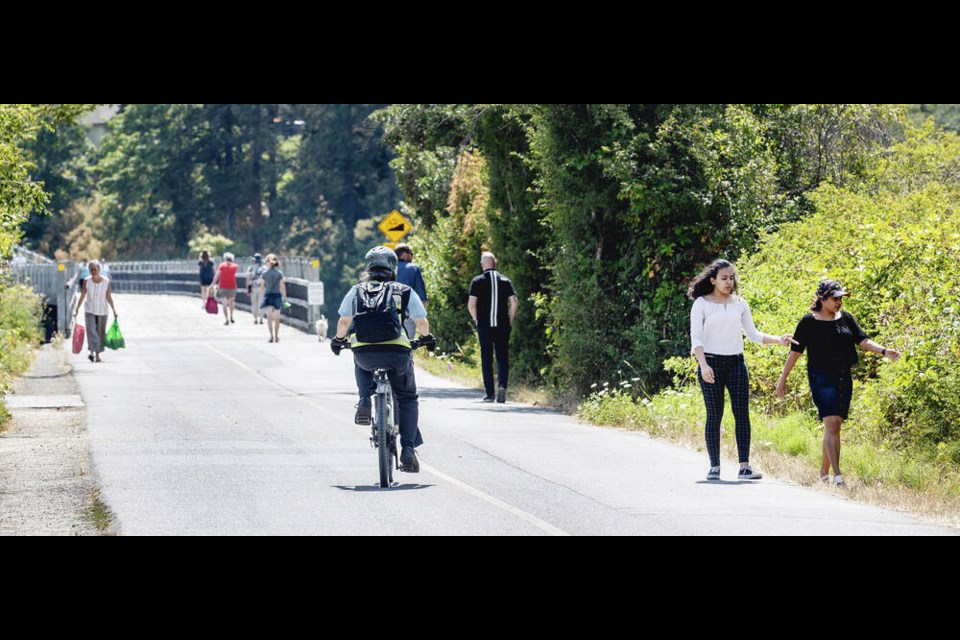A “badly needed” project to widen and add lighting to the increasingly busy Galloping Goose and Lochside regional trails took a step this week toward becoming a reality.
The Capital Regional District’s transportation committee voted Wednesday to send a recommendation to the CRD board that the $53.5-million widening and lighting project be included in the 2024-2028 financial plan and that funds be secured through debt.
The motion also directed staff to pursue grant opportunities and report back in September on other funding options.
The recommendation will need to be approved by the CRD board on Aug. 9.
Plans to widen and light the paths and to separate cyclists from pedestrians were praised by the public when they were first brought forward in 2021, but stalled when applications for senior government funding were unsuccessful, said Dean Murdock, chair of the CRD transportation committee.
The improvements are “badly needed” as user numbers climb, making the trails as well used as some of the region’s major roads, Murdock said.
Daily volumes last July reached upwards of 3,750 and are projected to increase by 2.5 per cent each year, a CRD staff report said.
“It certainly has gotten quite busy and you hear about conflicts between people walking and people riding, where separation between those types of users would create a much more enjoyable and safer experience,” Murdock said.
The CRD has documented safety concerns related to high user volumes and speed differences between users, the report said, adding with use of motor-assisted bikes and other mobility devices increasing, “user conflict is likely to increase.”
The CRD wants to widen and light the busiest sections of the Galloping Goose, from the Selkirk Trestle to Grange Road, and the Lochside trail, between the Switch Bridge near Uptown and McKenzie Avenue/Borden Street.
Those sections would be expanded to 6.5 metres wide with separate lanes for pedestrians and cyclists.
The staff report said the project would take place in phases — to minimize trail closures — over a period of six years if funded by securing debt.
Relying solely on the core budget and grants would stretch the timeline to 20 years, the report said.
Corey Burger, policy and infrastructure chair at Capital Bike, said the trails have become so busy that there are likely people who are avoiding walking on them during peak hours.
The higher sustained speeds of electric bikes and the sheer volume of users have created a situation that makes some people uncomfortable, he said.
“When you add a lot of people in, that discomfort becomes pretty problematic,” he said.
Burger noted the CRD staff report projected daily trail users in busy sections could reach 5,900 by 2040, but said that’s likely a conservative estimate.
Last week, a user counter on the Galloping Goose just north of the Selkirk Trestle counted 5,500 people in a day.



